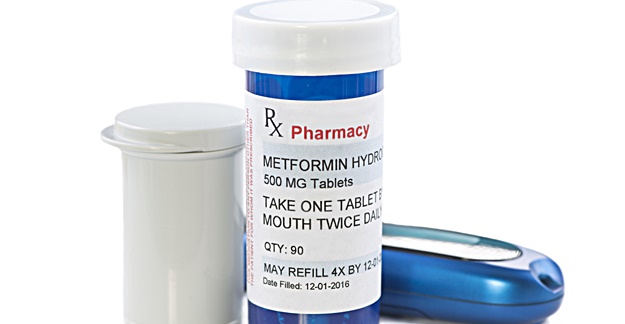Diabetes symptoms can be so mild that many people don’t even know they have it. Those who are diagnosed may stop taking their pills, because they find the side effects worse than disease’s limited symptoms. But it’s important to take this disease seriously because over time untreated or poorly treated diabetes can cause severe and irreversible complications like kidney, eye, and nerve damage or infections that lead to amputations.
This article focuses on the pros and cons of the oral type 2 diabetes drugs. Almost all people with type 2 diabetes are candidates for one or more of these medicines — but with so many kinds of diabetes drugs on the market, the choice can be difficult and confusing (even for doctors). A list is available here; click on the “medication basics” tab.
Why Diabetes Is So Bad
- Diabetes more than doubles the risk of developing and dying prematurely of heart disease and other problems.
- Diabetes significantly raises the risk of stroke; nerve, kidney and eye damage; blindness; impotence; decreased circulation in the legs and feet; and susceptibility to infections that can lead to amputations of toes, feet or part of a leg.
- Diabetes is the seventh leading cause of death in the United States and a leading cause of disability.
- In the early stages of diabetes, most people don’t experience symptoms. Yet, the damage to organs occurs even in the absence of symptoms. That’s why it’s critical for people to get their blood sugar checked periodically. Also, symptoms can be mild and intermittent for years, delaying diagnosis. These include fatigue, blurred vision, frequent urination, numbness or tingling in hands or feet, weight loss and increased thirst and hunger.
The Good News
Proper treatment can keep people with diabetes healthy. People with diabetes who receive good and consistent care can live a normal life.
The aim of treatment, with both lifestyle changes and medications, is to lower your blood sugar (as represented by your hemoglobin A1c level, also called HbA1c) and keep it at a healthy level, reduce symptoms, and reduce the risk of diabetes complications.
Managing diabetes is complex, but studies are now quite clear: Lifestyle changes matter and even small changes — such as losing 5% to 10% of your weight or exercising just 20 to 30 minutes every day — can help. Both yield solid benefits, and enable some people with diabetes to stop taking their medicines. A 2019 study published in Diabetic Medicine found that when people with type 2 diabetes lose 10% or more of their body weight in the first year after diagnosis, they double the likelihood that they’ll be in remission in five years. And in a joint statement based on high-quality studies, the American College of Sports Medicine and the American Diabetes Association note that 150 minutes of exercise per week positively affects lipids, blood pressure, cardiovascular events, mortality, and quality of life in people with type 2 diabetes.
Types of Diabetes Meds
Diabetes medicines work in quite different ways. But all of them lower blood sugar, help improve the body’s use of glucose, and decrease symptoms.
None of these drugs are problem-free; all can fail to control blood sugar adequately over time in some people who are given them. As a result, the different types of drugs are often used in combination. There are a number of combination products that combine two glucose-lowering medications into one pill. And in the last two years the FDA (Food and Drug Administration) has approved two triple combination pills, Qternmet XR and Trijardy XR, each combining a dipeptidyl peptidase-4 (DPP-4) inhibitor, a sodium-glucose co-transporter-2 (SGLT-2) inhibitor, and metformin. Your doctor may switch you from one type of drug to another and, if diabetes progresses, you may eventually need insulin to control your blood sugar.
Side Effects and Safety
Side effects are a serious problem with diabetes medicines. They vary from drug class to drug class and medicine to medicine, even within the same drug class.
Since many people with diabetes are trying to lose weight, the weight gain that can occur with some drugs can be especially frustrating. Here’s an overall assessment:
Common Side Effects
- Weight gain
- Gastrointestinal side effects (abdominal pain, nausea, vomiting, diarrhea, gassiness and bloating)
- Edema (fluid in legs and ankles)
- Upper respiratory tract infections
- Headache
- Hypoglycemia or low blood sugar (usually minor if caught early; untreated can become severe, causing hunger, profuse sweating, tremor, shakiness, dizziness, mental confusion, coma, and risk of death)
Uncommon
- Congestive heart failure
- Anemia (low red blood cell count)
- Allergic reactions
- Urinary tract infections
- Yeast infections
- Bone fractures
Rare
- Lactic acidosis (buildup of lactic acid in the blood)
- Eye problems
- Liver disease/liver failure
- Pancreatitis (inflamed pancreas)
Overall Pros and Cons
With the very important caveat that studies do not reveal how a specific person will respond to any particular diabetes drug, our evaluation leads to the following overall conclusions:
Metformin is a good initial choice for most people. However, an article in the journal, Diabetes, Obesity and Metabolism, reports that 30% of diabetic patients who are prescribed metformin eventually stop taking the medication. The research team attributes the falloff in compliance to gastrointestinal side effects. In a study conducted at the McGill University in Montreal, researchers found that Metformin potentially increases the risk of low thyroid-stimulating hormone level in patients with underactive thyroids (hyperthyroidism). On the positive side, metformin is associated with less likelihood of developing osteoarthritis than sulfonyureas.
In a study published on March 28, 2022, researchers found that men who took metformin while their sperm developed were more likely than their healthy counterparts to have babies with birth defects, especially genital defects in males. The same risk wasn’t seen in men who took insulin, and the study did not include enough men using sulfonylureas to determine whether those drugs increased the risk of birth defects. You may want to talk to your doctor about switching medications before trying to conceive.
Maarten Wensink, MD, PhD, a corresponding author on the study tells MedShadow, “The most important take-away for me is that we should take paternal contributions to offspring health seriously. . .The best treatment for type II diabetes remains lifestyle intervention: diet, physical exercise. I know that can be difficult, depending on one’s constitution, work environment, social environment, and so forth, but our findings only increase the important of lifestyle intervention, since it could obviate the need for any drug.” He adds that, “Men aspiring to fatherhood could consider switching to a different drug, but that is a decision that they should make together with their physician. Metformin is the first choice drug for type II diabetes because it is generally safe for the father and effective against diabetes. Yet alternatives are available.”
Taking two or more diabetes drugs can have a positive additive effect on reducing HbA1c. This is a net plus for people whose blood glucose is not well controlled by taking just one drug. The downside is that taking multiple drugs poses a higher risk of side effects. Taking lower doses of each drug can reduce that risk.
Blood sugar (HbA1c) reduction can vary slightly across the classes of diabetes drugs, and they have differing effects on weight. It’s important to discuss this effect with your doctor. People given metformin, a glucagon-like peptide 1 (GLP-1) receptor agonist or an SGLT-2 inhibitor may lose weight. Sulfonylureas, meglitinides and thiazolidinediones are associated with weight gain.
The diabetes drugs have distinctly different “safety profiles.” This factor may be one of the primary drivers of your and your doctor’s decision for initial and ongoing treatment. There is also evidence that taking into account a person’s sex and BMI (body mass index) can help health care providers provide the diabetes medications likely to be most effective while minimizing side effects.
Until fairly recently, not much has been known about the safety of newer medications, but researchers are learning more about their potential pros and cons. For example, in a study published in The New England Journal of Medicine, people with type 2 diabetes treated with the SGLT-2 canagliflozin had a lower risk of cardiovascular events than those who received a placebo but a greater risk of amputation of the lower leg. And in a 2020 study in the Annals of Internal Medicine, people given SGLT-2 inhibitors had triple the risk of developing diabetic ketoacidosis (DKA), a dangerous increase in acid in the blood due to prolonged high blood sugar, compared to those given DPP-4 inhibitors. However, the researchers note that the overall risk for DKA is relatively low in people receiving SGLT-2 inhibitors.
Minor but annoying side effects may also play a role in your and your doctor’s choice of a diabetes medicine or medicines. For example, gastrointestinal side effects — including bloating, gas, nausea, vomiting and diarrhea — are very common with acarbose and GLP-1 receptor agonists. They occur less often with metformin.
What is Prediabetes?
Many Americans have blood sugar levels above normal, but less than the level that warrants a diagnosis of type 2 diabetes. The most recent estimate from the CDC (Centers for Disease Control and Prevention) indicates that 34.5% of adults 18 and older — 88 million people — have blood glucose levels in this “prediabetes” or “borderline diabetes” range.
A growing body of research shows that people with prediabetes have both a high risk of developing diabetes, and an elevated risk of heart disease and stroke even if their blood sugar levels never rise into the full diabetes range. In a 2020 meta-analysis of 129 studies involving more than 10 million people published in the BMJ, people in the general population who had prediabetes had a 15% increased risk of cardiovascular disease and a 13% increased risk of death from all causes over a ten-year period. They also had an increased risk of coronary heart disease and stroke. In people with a history of heart disease, prediabetes was associated with a 36% increased risk of death from all causes and a 37% increased risk of cardiovascular disease over a three-year period.
This has led doctors to intensify efforts to identify and treat people with prediabetes. ost doctors agree, and research backs them up, that dietary and lifestyle changes — with the main goal being losing weight — can be very effective at keeping prediabetes under control, and before any medication needs to be prescribed.
This article is based on a Consumer Reports Best Buy Drugs report, written by me and other CR staffers, with input and advice from CR’s medical consultants and three external physician reviewers. The full report has background and other information and advice on diabetes and its treatment. The research studies in this report were updated November 2020 to reflect the most current knowledge.
The Best Buy Drug diabetes report was, in turn, based on a review of the scientific evidence on the effectiveness, safety and adverse effects of diabetes drugs conducted by the Johns Hopkins Evidence-Based Practice Center. That review — involving some 200 studies — was sponsored by the federal Agency for Healthcare Research and Quality (AHRQ). The advice herein, however, is solely attributable to Consumer Reports Best Buy Drugs and not to Johns Hopkins, AHRQ or the US Department of Health and Human Services.






